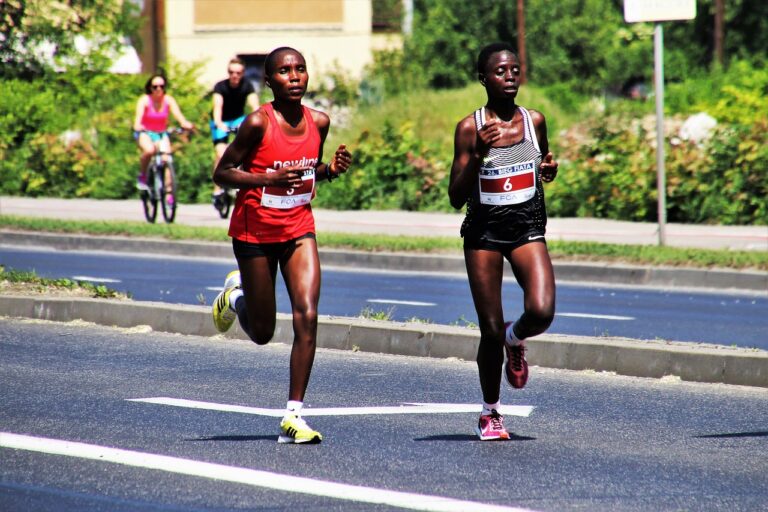Neurological Factors in Cricket Team Communication: Betbhai9 com whatsapp number, Playexch in live login, Lotus365 vip login
betbhai9 com whatsapp number, playexch in live login, lotus365 vip login: Cricket is a team sport that requires precise communication between players to ensure success on the field. While strategies, skills, and physical fitness play a crucial role in a team’s performance, neurological factors also have a significant impact on how well a cricket team communicates. In this article, we will explore the role of neurological factors in cricket team communication and how understanding these factors can help teams improve their performance.
Neurological Factors in Team Communication
1. Brain Function: The brain plays a vital role in communication, as it processes information and sends signals to different parts of the body. In cricket, players need to communicate quickly and effectively to coordinate their movements and make split-second decisions. A well-functioning brain can help players process information faster and react more efficiently on the field.
2. Motor Skills: Motor skills are essential in cricket, as players need to coordinate their movements to bat, bowl, and field effectively. Neurons in the brain control motor skills, and the ability to communicate effectively within a team can help players synchronize their movements and work together seamlessly.
3. Cognitive Abilities: Cognitive abilities such as attention, memory, and decision-making are crucial in cricket team communication. Players need to focus on the game, remember strategies and opponents’ weaknesses, and make quick decisions under pressure. Strong cognitive abilities can help players communicate better and make better decisions on the field.
4. Emotional Intelligence: Emotional intelligence plays a significant role in team communication, as players need to understand and manage their emotions to work well with their teammates. Empathy, self-awareness, and social skills are essential in cricket, as they can help players communicate effectively, resolve conflicts, and build strong relationships with their teammates.
5. Communication Styles: Different players may have different communication styles based on their personalities and preferences. Some players may be more vocal and assertive, while others may be quieter and more contemplative. Understanding and adapting to different communication styles can help teams communicate more effectively and work together harmoniously.
6. Nonverbal Communication: Nonverbal communication, such as body language, facial expressions, and gestures, can convey a lot of information on the cricket field. Players need to be aware of their nonverbal signals and interpret their teammates’ cues to communicate effectively without using words.
7. Team Dynamics: Team dynamics can significantly impact communication within a cricket team. A cohesive team with strong bonds and mutual respect is more likely to communicate effectively and collaborate successfully on the field. Building trust and camaraderie among team members can enhance communication and improve overall team performance.
8. Stress and Pressure: Cricket matches can be high-pressure situations, and players must cope with stress and perform under pressure. Stress can affect communication by impairing cognitive abilities and increasing tension between teammates. Developing stress management techniques and fostering a supportive team environment can help players communicate effectively even in stressful situations.
9. Feedback and Reflection: Feedback and reflection are essential components of effective communication in cricket teams. Players need to provide constructive feedback to each other, receive feedback graciously, and reflect on their performance to improve their communication skills and overall team performance.
10. Neuroplasticity: Neuroplasticity refers to the brain’s ability to adapt and reorganize itself in response to new experiences. By practicing communication skills, players can strengthen neural pathways related to teamwork and collaboration, enhancing their ability to communicate effectively with their teammates.
FAQs
1. How can teams improve their communication skills in cricket?
Teams can improve their communication skills in cricket by practicing active listening, enhancing nonverbal communication, understanding different communication styles, and fostering a supportive team environment.
2. What role does leadership play in team communication?
Leadership plays a crucial role in team communication by setting a positive example, providing clear direction, resolving conflicts, and promoting open and honest communication among team members.
3. How can stress affect communication in cricket teams?
Stress can impair cognitive abilities, increase tension between teammates, and lead to misunderstandings and communication breakdowns in cricket teams. Developing stress management techniques and promoting a supportive team environment can help mitigate the impact of stress on communication.
4. Why is emotional intelligence important in team communication?
Emotional intelligence is essential in team communication as it helps players understand and manage their emotions, empathize with their teammates, resolve conflicts, and build strong relationships within the team.
In conclusion, neurological factors play a crucial role in cricket team communication, influencing players’ brain function, motor skills, cognitive abilities, emotional intelligence, communication styles, and team dynamics. By understanding and addressing these neurological factors, teams can enhance their communication skills, work together more effectively, and improve their overall performance on the field.







